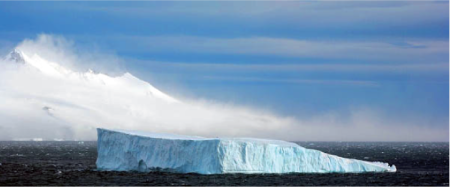| SEARCH |
-

Nov 17, 2015
Reflections on a three-decade legacy
The International Geosphere-Biosphere Programme (IGBP) will come to a close at t...
-
Nov 17, 2015
Use of and access to content on this website
Text and images produced by IGBP in house are free to use with appropriate credi...
-
Nov 12, 2015
Bella Gaia performance and panel discussion to mark IGBP's closure
A musical performance by Bella Gaia will celebrate the achievements and legacy o...
-

Towards Future Earth:
evolution or revolution?
During its three decades of existence, the International Geosphere-Biosphere Pro...
-
A personal note on IGBP and the social sciences
Humans are an integral component of the Earth system as conceptualised by IGBP. João Morais recalls key milestones in IGBP’s engagement with the social sciences and offers some words of advice for Future Earth.
-
IGBP and Earth observation:
a co-evolution
The iconic images of Earth beamed back by the earliest spacecraft helped to galvanise interest in our planet’s environment. The subsequent evolution and development of satellites for Earth observation has been intricately linked with that of IGBP and other global-change research programmes, write Jack Kaye and Cat Downy .
-
Deltas at risk
Around 500 million people worldwide live on deltas, but many of the world's deltas are sinking due ...
-
Climate change: the state of the science
A new data visualization released on the first day of the plenary negotiations at the UNFCCC’s clima...
-
Climate Change:
the State of the Science
Videos now online from the Stockholm public forum to mark the launch of the IPCC's climate report, 2...
Marine ecosystems’ responses to climatic and anthropogenic forcings in the Mediterranean
The Mermex group, Durrieu de Madron X, Guieu C, Sempéré R et al.

The semi-enclosed nature of the Mediterranean Sea, together with its smaller inertia due to the relative short residence time of its water masses, make it highly reactive to external forcings, in particular variations of water, energy and matter fluxes at the interfaces. This region, which has been identified as a “hotspot” for climate change, is therefore expected to experience environmental impacts that are considerably greater than those in many other places around the world. These natural pressures interact with the increasing demographic and economic developments occurring heterogeneously in the coastal zone, making the Mediterranean even more sensitive. This review paper aims to provide a review of the state of current functioning and responses of Mediterranean marine biogeochemical cycles and ecosystems with respect to key natural and anthropogenic drivers and to consider the ecosystems’ responses to likely changes in physical, chemical and socio-economical forcings induced by global change and by growing anthropogenic pressure at the regional scale. The current knowledge on and expected changes due to single forcing (hydrodynamics, solar radiation, temperature and acidification, chemical contaminants) and combined forcing (nutrient sources and stoichiometry, extreme events) affecting the biogeochemical fluxes and ecosystem functioning are explored. Expected changes in biodiversity resulting from the combined action of the different forcings are proposed. Finally, modeling capabilities and necessity for modeling are presented. A synthesis of our current knowledge of expected changes is proposed, highlighting relevant questions for the future of the Mediterranean ecosystems that are current research priorities for the scientific community. Finally, we discuss how these priorities can be approached by national and international multi-disciplinary research, which should be implemented on several levels, including observational studies and modeling at different temporal and spatial scales.

IGBP closed at the end of 2015. This website is no longer updated.
-

Global Change Magazine No. 84
This final issue of the magazine takes stock of IGBP’s scientific and institutional accomplishments as well as its contributions to policy and capacity building. It features interviews of several past...
-

Global Change Magazine No. 83
This issue features a special section on carbon. You can read about peak greenhouse-gas emissions in China, the mitigation of black carbon emissions and the effect of the 2010-2011 La Niña event on gl...
-
INTERGOVERNMENTAL PANEL ON CLIMATE CHANGE:
How green is my future?
UN panel foresees big growth in renewable energy, but policies will dictate just how big.
-
UK:
'The Anthropocene: a new epoch of geological time?'
Royal Society, Philosphical Transactions A


















